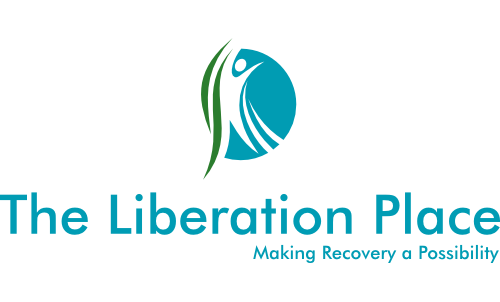-
Positive Communication
Often, when we are on the journey of behaviour change, there are some important relationships that can become somewhat troubled or even dysfunctional along the way. In many relationships, where anger, resentment, codependency, or addictive, obsessive, and compulsive behaviours have been involved in the past, there are some commonalities in which our general level of communication tends to decline. These issues can show up in every aspect of communication, not just in our communication about the so-called “problematic" areas of the relationship.
Usually, when we're stuck in this difficult and uncomfortable type of interpersonal dynamic, both parties develop a tendency to favour negative, and sometimes hurtful comments, rather than the more empowering, positive communication that can actually benefit the situation. We tend to talk at other people using “You” statements rather than talking to them using "I" statements. This confrontational approach is often perceived as an attack in a way that's seen as blaming by the other party, or parties involved. In response, this tends to activate a defensive mode of behaviour, and we regularly start to disregard, or even invalidate each other’s point of view.
"We tend to talk at other people using “You” statements rather than talking to them using "I" statements."
~Steven Morris RP.
It's generally at this point in time that both parties simply stop being accountable and refuse to share any type of responsibility for the dynamic that’s been created. In many cases, we remove any trace of self-accountability from the conversation, and we just sit in a space of blaming each other for the problems we’re experiencing at every opportunity we get. The good news is that this unproductive and extremely ineffective communication style can be changed with some pretty minor tweaks. Learning to communicate in what might be a completely new way, and learning how to listen to others effectively are skills that are important for any journey into self-discovery. This can often lead to significantly improved relationships throughout our lives in general, not just in those areas of life that are important to us.
In order to do something about the way we communicate, we first need to own our current way of doing things. Once we know from which point we’re starting, we have a direction we can take to make the changes we want to make. For the purpose of this particular aspect of the DBT Skills training program, we are going to focus on four different styles of communication to see if we can identify which category we might commonly fall into. Then we will define what it means to use the skills of Positive Communication, something we can easily adapt to be in line with who we want to be in those areas of life that are important to us, right now. When you take a look at the list on the following page, ask yourself, "which one do I use the most in my relationships?” Remember, you may communicate in a very effective way when your system is in a safe place, so pay particular attention to how you communicate when you’re emotionally activated.
Passive communication
Not standing up for your own rights
Not setting limits or boundaries on another’s behaviour.
Continually putting other’s needs before your own.
Taking on the role of “martyr"
Not being able to say "no"
Aggressive Communication
Bullying and intimidating others to get what you want
Threatening people
Ignoring the needs and rights of others
Shouting, yelling, screaming or physically abusing others
Passive-Aggressive Communication
Indirectly communicating
Slamming doors
Giving the "silent treatment"
Saying something that is designed for your Loved One to hear without saying it to her directly
Using sarcasm/put downs
Using humor to be nasty or hurtful
Assertive Communication
Being direct and honest
Being able to negotiate - having a sense of give and take
Asking for your own needs to be met, while respecting the needs of others
Being able to say "no" and set limits
Being able to acknowledge when you are in the wrong
Positive Communication
There are four important areas of interpersonal communication that often get lost when relationships break down. As I said before, both parties have usually stopped using statements that are empowering to each other, no longer are we using the positive statements that begin with "I", and the interactions we regularly take part in start degrading rapidly. If we express an understanding of the individual we are dealing with and demonstrate a willingness to share responsibility for the situation, in essence be accountable for the role we play, we can begin to communicate on a different level, which often empowers the other person to follow suit.
Keep in mind, in order to effectively use this type of communication, we first need to have the ability to handle the distress that comes into our system when entering into this type of situation. Without the ability to tolerate the distress and identify the story that gets activated in our system, we won’t be able to manage the different parts of our personality that are responding to the presence of an uncomfortable and often unwanted emotional experience. This generally means we just cycle into old reactions, then sit in the feelings guilt and shame that we’re left with, wondering “how the hell did we got here.”
“In order to effectively use this type of communication, we first need to have the ability to handle the distress that comes into our system when entering into this type of situation.”
~Steven Morris RP.
We also need to have a solid idea of what our objective is going into the interpersonal interaction. If we don’t know what it is that we’re trying to achieve, we can get lost in the confusion of emotion, and end up coming out feeling worse than we did when we went in. Working through the skills of DEAR MAN, GIVE, and FAST, can provide the insight we need in this area, and the formula provided for Positive Communication is designed to be used in conjunction with these skills, along with Planning Ahead to Build Mastery so we can be ready for the emotional experience that has challenged us in the past.
When it comes to the implementation of our Positive Communication stye, it can be helpful to remember the mnemonic known as PIUS to help remember how to get our communication back on track in times when things are not exactly going how we want them too. PIUS was developed for the SMART Recovery program of addiction support however, it is extremely relevant for any work being done where communication is believed to be breaking down in relationships, regardless of the reasons for the breakdown. On the following page, you will find a list of the mnemonics attached to the process of the PIUS skill.
Be POSITIVE
Include positive comments in your conversation and avoid using negative comments wherever it is possible. This not only helps the listener to feel at ease, but also helps us to remember that we do appreciate some things about the individual you are conversing with. Try to think of something that you really like about them, or just tell them that you love them, if that’s the case. When we become conscious of these things, we tend to communicate in a more positive manner.
Use "I" statements
When used appropriately, this can be one of the best communication tools that we have. It helps us speak to another person in a way that communicates our needs or wishes, without blaming or criticizing the other person. Remember, when people feel blamed or criticized, they usually become defensive. As you will see, in the PDF at the bottom of the page there is a formula that many find useful when structuring your communication using “I” statements.
Be UNDERSTANDING
Show that you care about the person and respect them enough to try to understand their point of view, even if you do not agree with it. Listen to the person, really listen to them. Understand where they're coming from, and if you don't, ask questions, don't make assumptions. Try to reflect back what you hear in a nonjudgmental tone. Understanding the person’s point of view will make it easier for you to find some common ground. When you show that you are trying to understand something about another person, they are more likely to accept that you have something important to share with them.
Accept and SHARE responsibility
In any interaction, it's important to remember that neither one of us is perfect. Understanding, acknowledging, and being accountable for our part in any problem goes a long way to breaking out of the pattern of conflict. It is extrmely rare that 1 person is 1005 reponsible for the dynamic in a relationship, so owning the role we play is essentioal in the vreation of a healthy adult dynamic.
"Remember, when people feel blamed or criticized, they usually become defensive."
~Steven Morris RP.
In the PDF at the bottom of this page you will find a worksheet that contains the formula for Positive Communication. Please remember that this is intended to provide the process that we follow, not the actual language that we use. If you follow this formula to the letter and speak this way to the people in your life, there is a high probability that they will laugh at you or wonder what’s wrong with you because it will make you sound like a robot. Take the process contained in the formula and adapt it to your own language.
Also, know your audience. If you can be direct, be direct, if you need to be sensitive to the persons emotional reaction, then be sensitive. Part of demonstrating emotional maturity means is being able to adapt our behaviours to different social circumstances, not doing the same thing all the time and expecting others to adapt to us. Use this script with the Planning Ahead to Build Mastery skill and rehearse your conversations over and over again. The only way this becomes a part of Living the Life you Want to Live is when you practice, practice, and practice the skill. Then when you think you’ve practiced it enough, practice some more.
Download the PDF of this page
Follow us on Social Media





